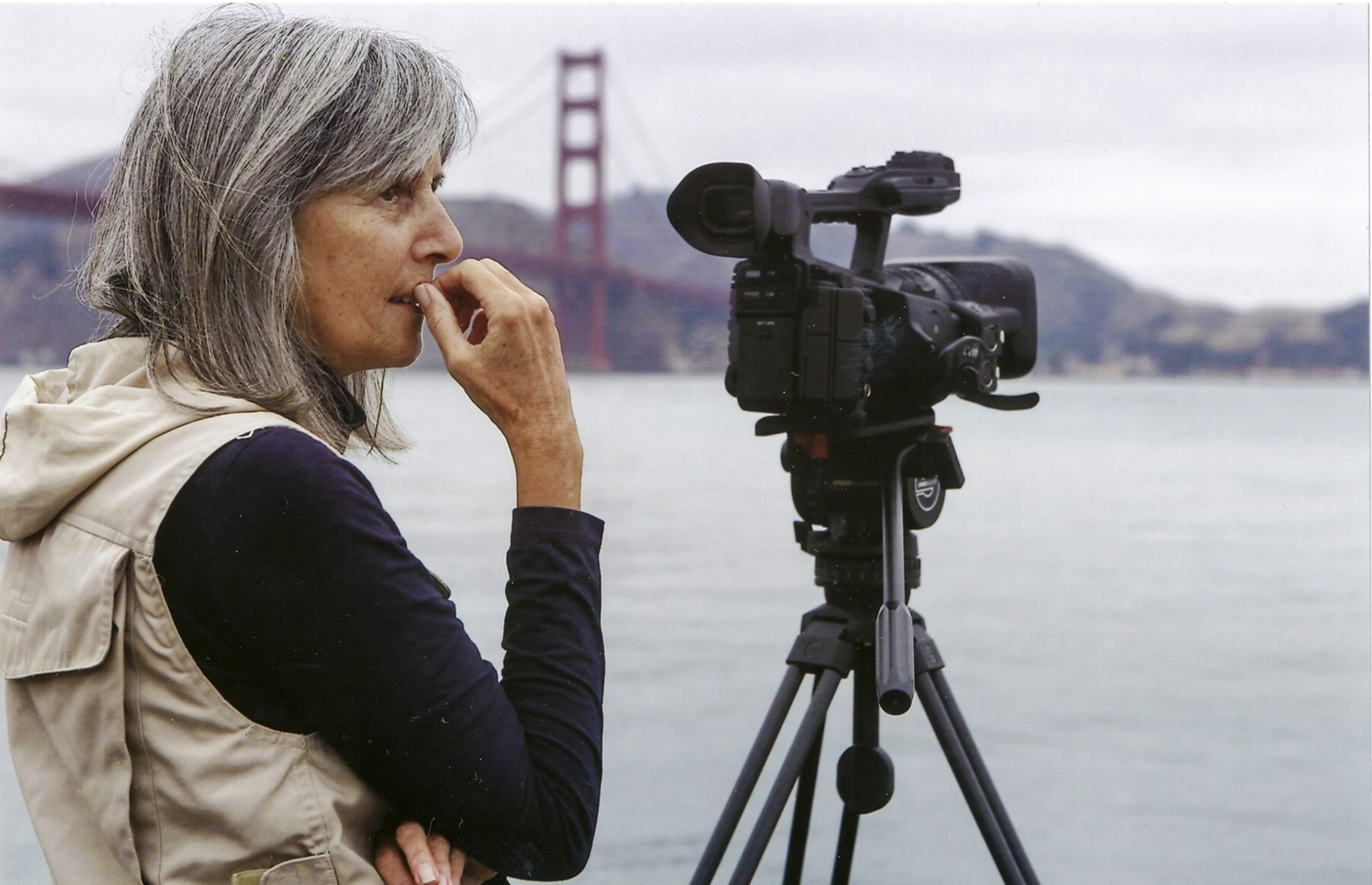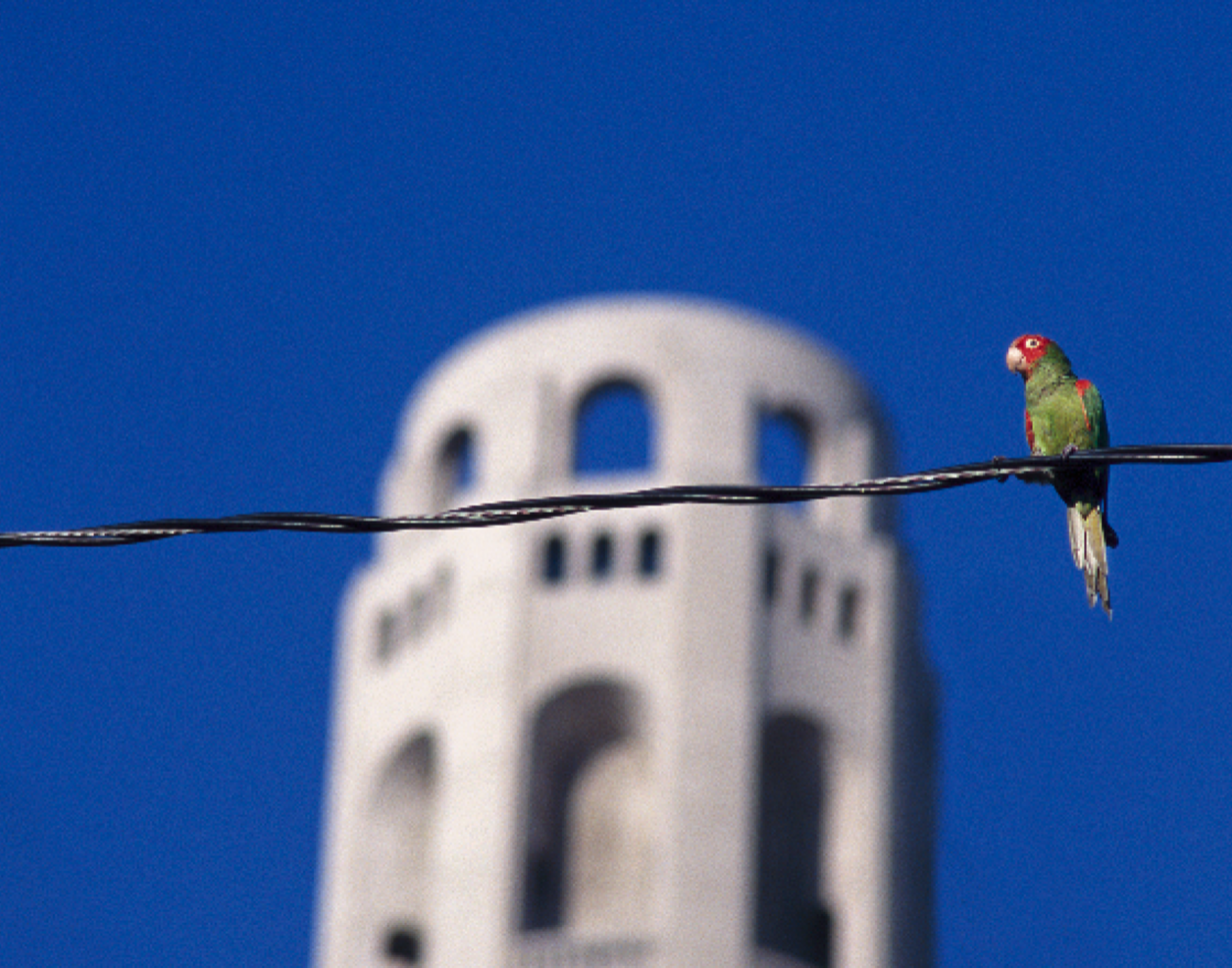Twenty years after their Hollywood debut, the wild parrots of Telegraph Hill are still squawking—and breeding—like crazy.
The parrots became San Francisco celebrities in part thanks to the 2003 documentary The Wild Parrots of Telegraph Hill, which screened in 500 theaters and grossed more than $3 million. A restored, 20th anniversary version of the celebrated film (opens in new tab) lands at the Mission District’s Roxie Theater Friday.
“It’s become a classic in San Francisco and nationally,” said director Judy Irving.

Irving has been working on a restored version of the documentary for the past five years. Filmgoers can expect a more vibrant, speck-free viewing experience that takes up the full frame, what Irving called “the director’s framing.”
Today, parrot fans can scout the colorful conures all over the city and as far south as Brisbane, but they’re most reliably spotted at Sue Bierman Park, near the Ferry Building. Every day around 4 p.m., they fly in like a swarm of locusts and roost on the tall eucalyptus to snooze for the night.
It remains a mystery exactly where the parrots came from. Though theories abound (opens in new tab), it’s assumed that the first mating pair escaped, or were released, from a pet store. What is known is that the cherry-headed flock established itself around 1990 and found a leafy refuge in Telegraph Hill. Despite their association with the neighborhood, the iconic birds never actually nested there—they only flocked to the hill as a food source, feasting on the profusion of loquats, juniper berries, blackberries, apples and magnolia blossoms.

The wild parrots soon did what nature intended and began mating. Their numbers have grown from dozens in the 1990s to an estimated 250 to 300 birds today. While the birds used to nest exclusively at Fort Mason, their area codes now span from North Beach to the Mission, the Richmond to the Marina. The only neighborhood they haven’t been reported in is the Outer Sunset.
San Francisco’s chilly weather doesn’t ruffle the feathers of the tropical birds, and they can be spotted flying all across San Francisco. It remains a thrill to spot them, as unexpected and whimsical as the city itself.
The documentary film follows Mark Bittner (opens in new tab), a philosopher turned amateur ornithologist, who develops a close relationship with the birds.
“I was completely alone when I started that project,” he said, recalling that he’d recently arrived in San Francisco as a homeless seeker, having dropped out of society in search of the meaning of life. “They were my only real friends.”

Bittner claims the birds gave him insights into human as well as feathered social dynamics. “The journey to the street and the journey with the parrots are all part of one journey,” he said. “The parrots got me off the street.”
Irving attributes the success of the documentary to Bittner’s close, focused attention on the birds, taking the time to get to know them and name them. “He actually found out more about them than most scientists ever do,” she said.
It’s a practice Bittner himself would not encourage today, as the parrots’ numbers grow and their range around the city spreads. He supported a 2007 law that forbids feeding the parrots in public parks. The film’s formerly homeless star hopes that people just leave the birds alone, as they are doing just fine on their own.
“No one needs to worry about them making it or not,” he said.
Both Bittner and Irving see the parrots as a metaphor for the magic of San Francisco and its colorful and quarreling factions. “They squabble a lot about which way to go when they’re flying,” Irving said. “They’re exuberant, joyful, and they know the city well.”
Irving’s 2023 documentary about San Francisco Bay swimming, Cold Refuge, is also out in theaters now—the first time the director has had two films screening at the same time. But to witness one of her early films back in theaters is particularly special. After showing at the Roxie, the film will move on to San Rafael and then Bolinas, with both Bittner and Irving appearing at the opening screenings.
“It goes so much deeper than an animal movie,” Irving said. “The parrots literally taught Mark about consciousness, about death.”
The Wild Parrots of Telegraph Hill
🗓️ Jan. 12-18
📍 The Roxie Theater, 3117 16th St. (opens in new tab)
🔗 roxie.com (opens in new tab)
🗓️ Jan. 14
📍 Smith Rafael Film Center, 1118 Fourth St., San Rafael (opens in new tab)
🔗 rafaelfilm.cafilm.org (opens in new tab)
🗓️ Feb. 3
📍 Bolinas Community Center, 14 Wharf Road (opens in new tab)
🔗 bocenter.org (opens in new tab)
